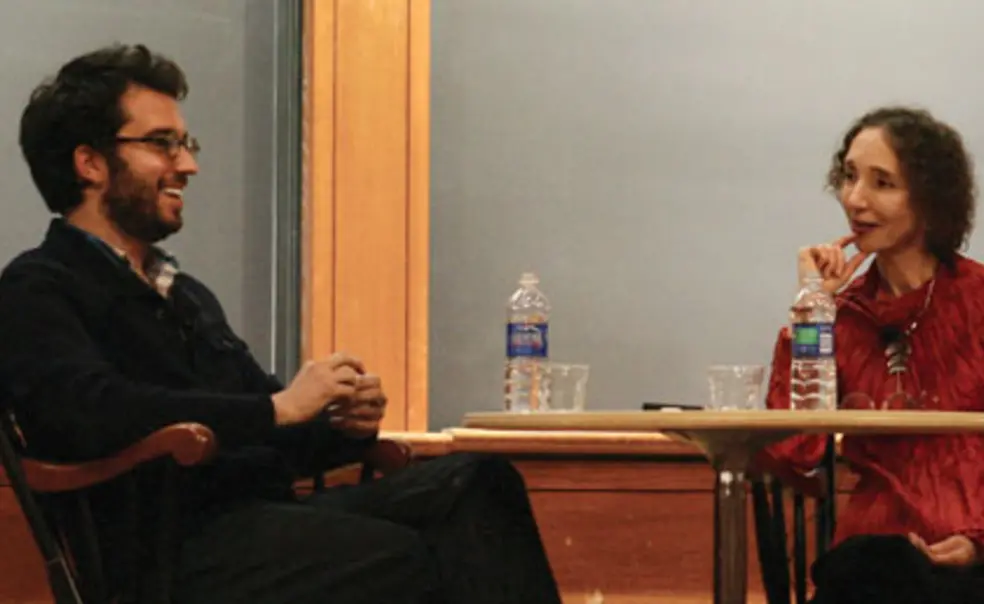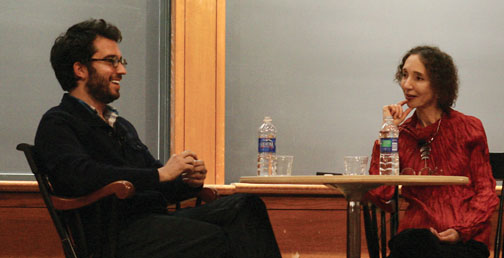Foer ’99, Oates share ‘Writing Life’
As a freshman, Jonathan Safran Foer ’99 had no ambition of becoming a writer. Then Professor Joyce Carol Oates told him before class one day, “I’m a fan of your writing” — a moment, he recalled at a public lecture in November, that was “life-altering.” “It hadn’t occurred to me at that point,” he said, “that there was such a thing as ‘my writing.’ ”
Foer thanked his former professor for that realization at the beginning of a wide-ranging conversation on “Writing Life” they had in a packed McCosh 50, in which he discussed his writing method, his exploration of factory farming for his 2009 book Eating Animals, and his most recent book Tree of Codes, in which he carved out words from the Polish-Jewish writer Bruno Schulz’s The Street of Crocodiles, a collection of stories, to create a new story.
Foer had surprised Oates earlier in the day when he had told her students that he didn’t know what he was going to do when he began a project, unlike many writers who extensively plan their books — making outlines and maps on the wall. Foer explained that he had planned his work in the past, but had felt “constrained.” He also likes to allow for the possibility of “accidents,” which can send him off in a more interesting direction. His method, he said, involves overwriting. “I put out a lot, and then I try to figure out what’s worth keeping,” he said.
Foer had spent the day on campus — in addition to sitting in on Oates’ class, he led a two-hour workshop on memoir writing at the Center for Jewish Life for two dozen students, before joining students for lunch at the CJL, where he shared his thoughts on his career and how his Jewish identity influenced his work.
“Good books really do help the world” and can change people and cultures, Foer told the workshop participants at CJL. He advised the students to write only what is “necessary,” and then asked them to write a short autobiographical piece in about 20 minutes.
Rafael Abrahams ’13, who helped organize the workshop, said he got a lot out of thinking about “why you should write” and not just about the work itself.













No responses yet